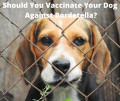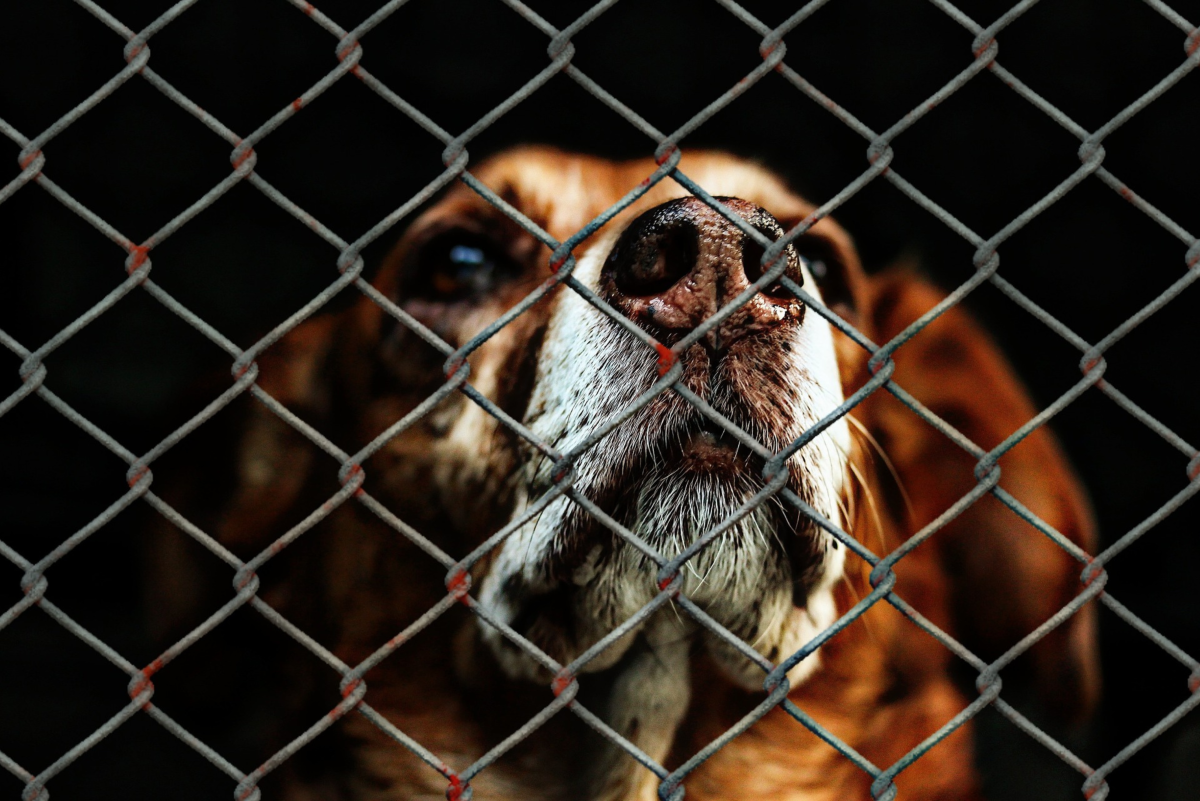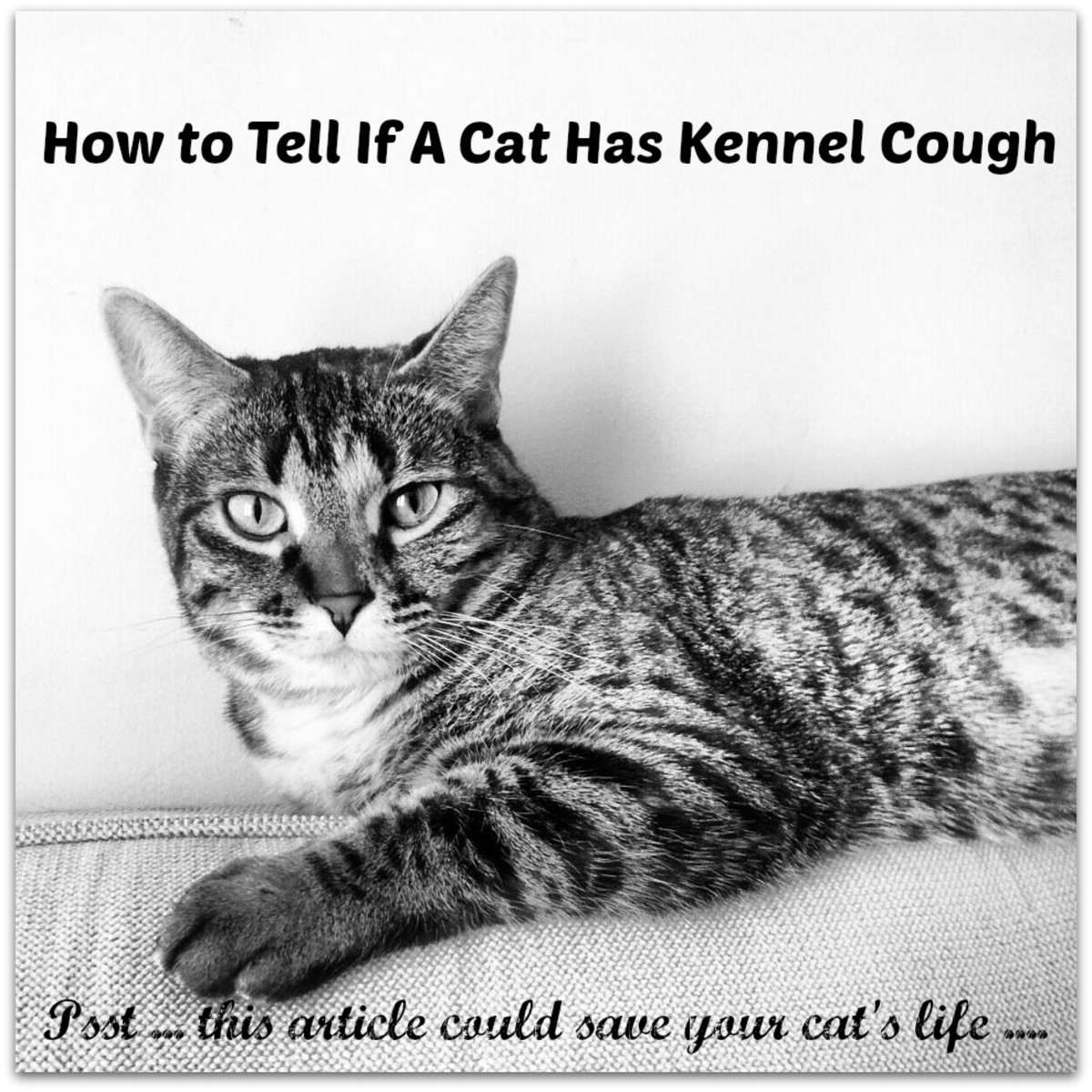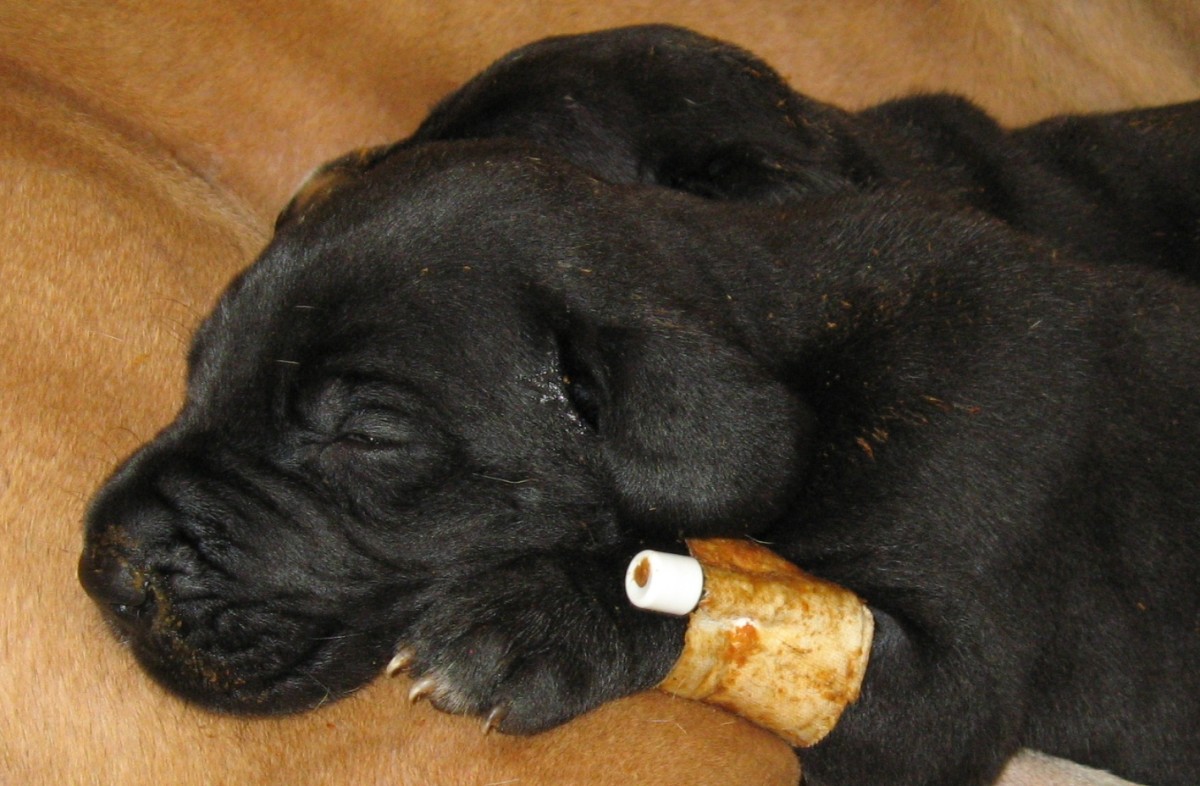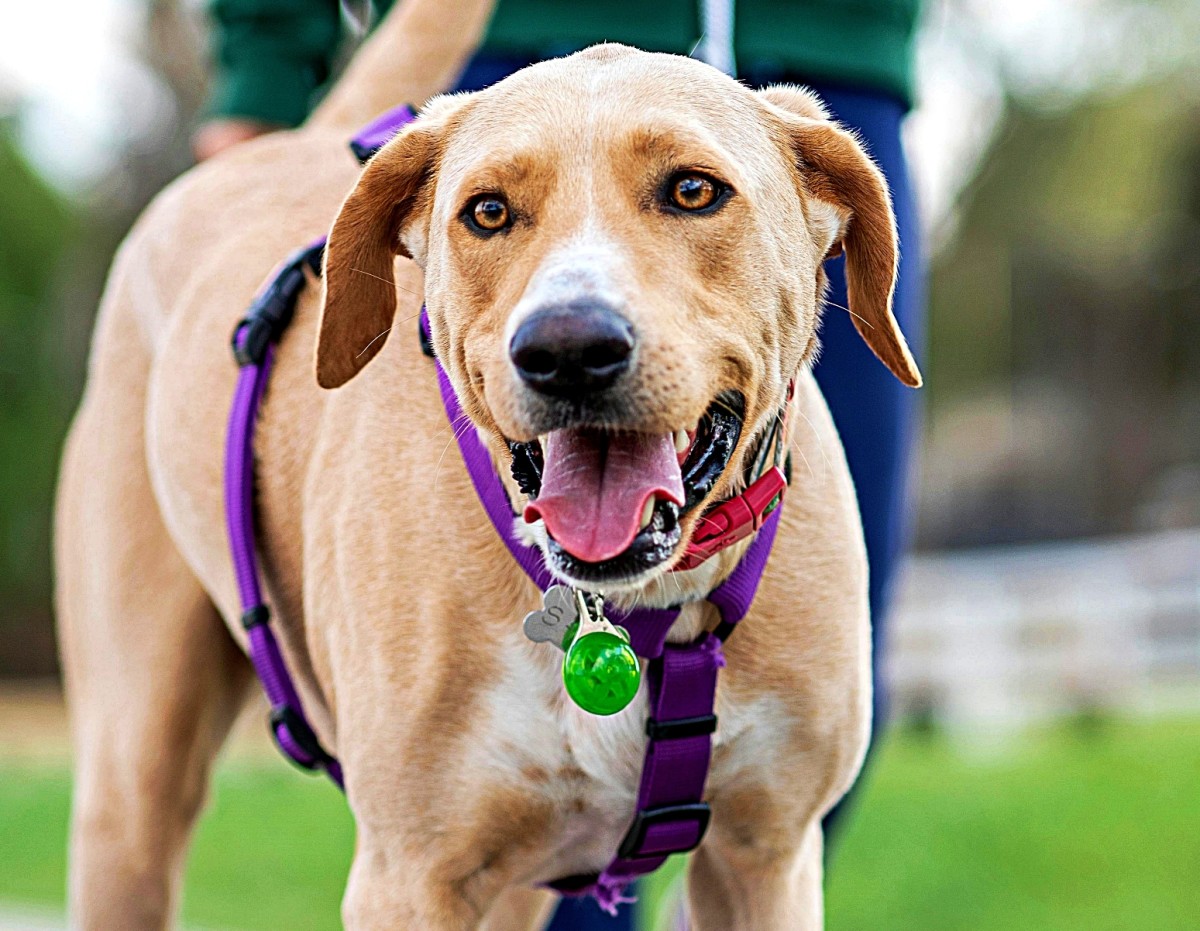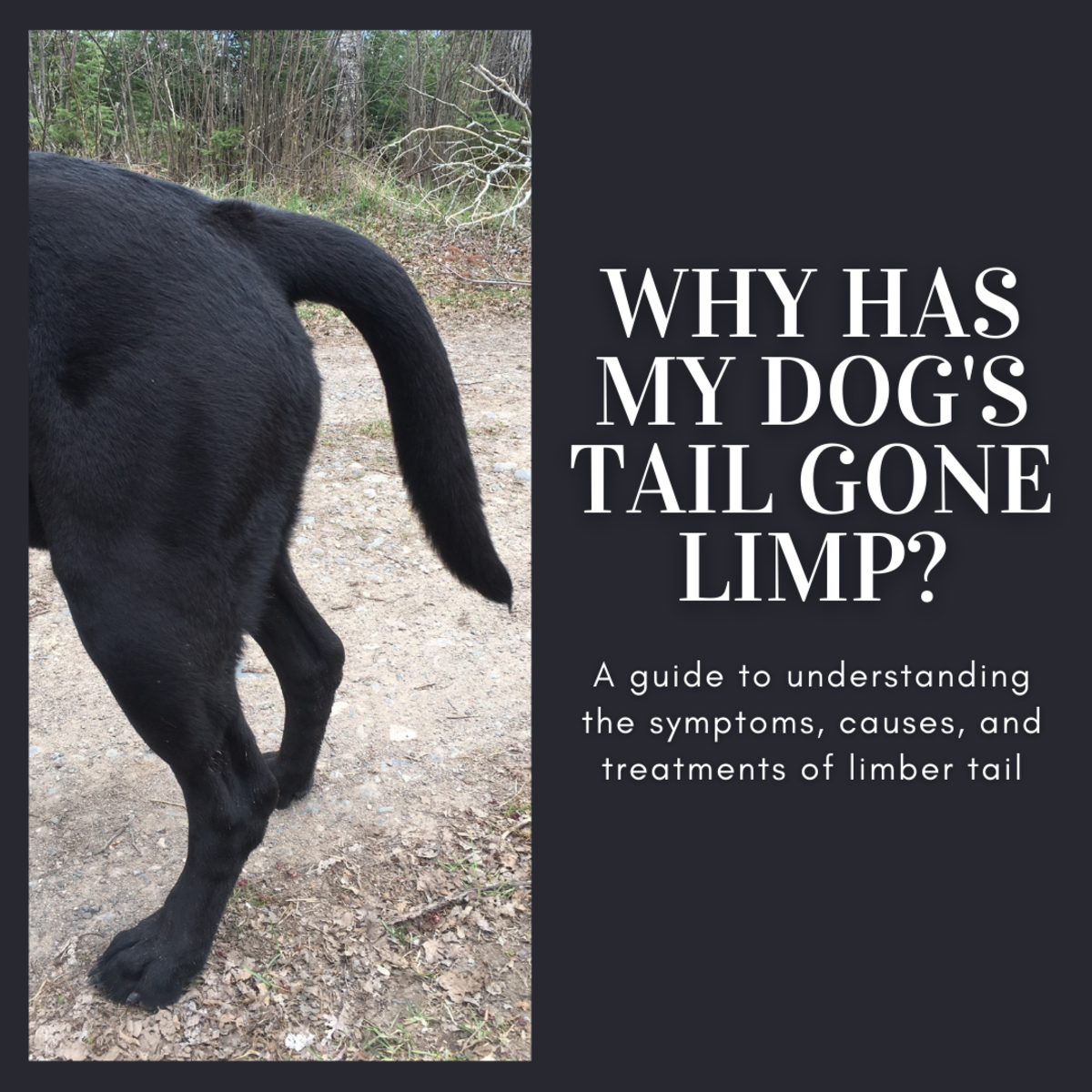My Dog is Coughing - Is It Kennel Cough?
Kennel Cough
My Dog is Coughing - Is It Kennel Cough?
Kennel Cough is the term that was commonly applied to the most prevalent upper respiratory problem in dogs in the United States. Recently, the condition has become known as tracheobronchitis, canine infectious tracheobronchitis, Bordetellosis, or Bordetella. It is highly contagious in dogs. The disease is found worldwide and will infect a very high percentage of dogs in their lifetime. I like to keep it simple, so I will refer to it as Kennel Cough.
Infectious agents involved
There are many different agents that can cause Kennel Cough. The most common are parainfluenza virus, Bordetella bronchiseptica, and Mycoplasma. Canine adenovirus type 2, adenovirus, and canine herpes virus are thought to possibly contribute to the disease, as well. Although any one of these organisms can cause symptoms of the disease, the majority of cases are the result of more than one organism.
The most common viral agent is parainfluenza virus. This common virus will cause mild symptoms lasting less than 6 days unless there is involvement of other bacteria, which is usually the case. Most 5-way vaccines and kennel cough vaccines offer some protection against this virus.
Bordetella bronchiseptica is the most common bacteria isolated from dogs with tracheobronchitis. Clinical signs of infections occur 2-14 days after exposure, and if uncomplicated with other agents, symptoms will last around 10 days. However, after the infection has been resolved, the affected animal will continue to shed the bacteria for 6 to 14 weeks and can spread the disease to other susceptible animals during that time. Bordetella is one of the agents protected against through the use of intranasal kennel cough vaccines. Parainfluenza and Bordetella most commonly appear together in infectious tracheobronchitis, creating a disease that normally lasts from 14-20 days.
Symptoms
The most common symptom is a dry hacking cough sometimes followed by retching. Many owners describe the cough as having a 'honking sound.' A watery nasal discharge may also be present. With mild cases, dogs continue to eat and be alert and active. Many times, there is a recent history of boarding or coming in contact with other dogs. In more severe cases, the symptoms may progress and include lethargy, fever, poor appetite, pneumonia, and in very severe cases, even death. The majority of severe cases occur in immunocompromised animals, or young unvaccinated puppies.
Diagnosis
Diagnosis is usually based on the symptoms and a history of recent exposure to other dogs. Bacterial cultures, viral isolation, and blood work can be performed to verify individual agents of the disease, but due to the characteristic nature of the symptoms, these tests are not routinely performed.
Treatment
There are two treatment options depending on the severity of the disease. In the most common mild (uncomplicated) form of the disease, antibiotics may or may not be used. Treating the mild case does not shorten the length in which the animal will be a potential spreader of the disease. In addition, bronchodilators like aminophylline or cough suppressants may also be used in treatment of mild cases.
In more severe (complicated) cases where the animal is not eating, running a fever, or showing signs of pneumonia, antibiotics are often used. The most common ones are doxycycline or trimethoprim-sulfa. However, many other choices are also available. Steroids or cough suppressants are not usually recommended because of the risk of immunosuppression with steroids and the need to continue to clear extra fluid or mucous in pneumonia patients. Bronchodilators and even aerosol therapy can be used. In moderate or severe cases, veterinary care should be instituted, as the resultant pneumonia could become life threatening if not treated properly and promptly.
Because pressure on the throat and trachea can make coughing worse, it is recommended that dogs with a cough should wear a head collar or harness instead of a regular neck collar.
Vaccination and prevention
The best prevention is to not expose your dog to other dogs, especially young puppies. If this cannot be avoided, then proper vaccination is the next best option. Chances are that if your dog is regularly vaccinated with a standard 5-way or 7-way vaccine, he is already being protected against several of the agents causing kennel cough, mainly parainfluenza and adenovirus. However, these vaccines alone rarely provide protection against contracting the disease, although they will help reduce the severity of the disease if the animal becomes infected.
There is an injectable kennel cough (Bordetella) vaccine, and one that is given intranasally (squirted into the nostrils). Neither vaccine will totally prevent infection with Bordetella. For the injectable vaccine, 2 doses must be given 3-4 weeks apart, and protection does not occur until 1-2 weeks after the second injection.
Do not give an intranasal vaccine as an injection, as an abscess may occur.
More commonly, for best protection, an intranasal vaccine containing both parainfluenza and Bordetella is used. Intranasal vaccines create localized immunity that greatly reduces the incidence of clinical signs and illness. The vaccine may be used in puppies as young as 3 weeks of age, only one dose is necessary to provide protection, and protection occurs as early as 3-4 days following vaccination. There are several precautions and warnings that need to be observed pertaining to this vaccine. Some dogs will develop mild signs similar to tracheobronchitis when given this vaccine. Very often, the symptoms will last for several days and the dog will recover without treatment. Dogs that are vaccinated can also shed the virus and cause other dogs to become mildly infected and show mild signs. This shedding usually lasts less than 72 hours.
In addition, it takes up to 4 days after vaccination for dogs to develop protection. When you combine these facts, you will see why it is strongly recommend that a dog not be given intranasal vaccine within 72 hours of coming into contact with other susceptible dogs. Do not give the vaccine the day before a dog show, boarding, etc. Try to give at least four days before contact with other dogs and preferably 7 days. This way you will protect your dog from becoming infected by other dogs, and protect those dogs from becoming infected by yours.
In kennels where kennel cough is a problem, strict hygiene with thorough cleaning and disinfection of cages and food and water containers is essential. In addition, kennels that are indoors should have good ventilation with an air turnover rate of at least 12 times an hour. Agents causing kennel cough can be transmitted on hands and clothing as well as through the air, so infected animals must be isolated and handlers should wear gloves and use proper hand washing to help prevent spread. Vaccination of all animals, especially puppies is indicated in problem kennels. After initial vaccination in puppies, a yearly booster is recommended. However, some dogs that are at very high risk are vaccinated every six months.
Human health risk
Until recently, infectious kennel cough was considered to not be a human health risk. Recently however, research indicates that Bordetella bronchiseptica may cause disease in some humans, primarily those with compromised immune systems. In normal, healthy adults there does not appear to be a risk, but young children and immunocompromised individuals should take precautions against coming into contact with animals that have symptoms of Kennel cough (tracheobronchitis).
Summary Kennel Cough, now more commonly referred to as 'infectious tracheobronchitis' is a widespread disease caused by several different viruses and bacteria. It is usually a self-limiting disease and most animals do not require treatment. Intranasal vaccines are effective, but due to some possible side effects are recommended for animals that are at higher risk. Infectious kennel cough is a disease of dogs and wild canids; it does not appear to be a risk to healthy humans.
Remember, before going to shows with you dog, or boarding, be sure to get your dog vaccinated. A healthy dog is a happy dog. If you have any questions, please feel free to contact me.
This article is solely intended for informational purposes. It is not intended to diagnose or treat any medical condition with your pet. Always seek the advice of your veterinarian.
http://www.thepetblog.net

